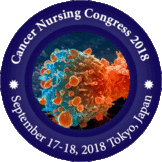
Qasem Alnasr
Oncology Nursing Examination Board Member at Saudi Commission for Health Specialties, Saudi Arabia
Title: Perceptions of rural nurses extending their role to administer chemotherapy
Biography
Biography: Qasem Alnasr
Abstract
Background: Nurses in rural regions of South Australia are currently administering chemotherapy in centers where this was not previously the case. To prepare these nurses a state-wide chemotherapy education and assessment programme was implemented in 2013. This research project explored the perceptions of nurses working in level-one rural centers administering low-risk chemotherapy protocols.
Objective: The study explored how registered nurses who administer chemotherapy in low-risk chemotherapy services in rural SA perceive their expanded roles and whether they felt equipped with the knowledge and skills required to undertake them.
Methods: This is a qualitative study. Individual interviews were conducted with eight registered nurses working in low-risk chemotherapy centers in rural settings. The data analysis methods were based on critical social theory.
Findings: Four main categories of findings are identified: 1) role extension, preparedness, and self-confidence; 2) chemotherapy services in rural areas; 3) power relationships, referrals and knowledge sustainability; and 4) communication with other cancer settings and professionals. Overall, participants highly valued the service as a valuable support for rural patients with cancer, but they identified areas of concern, including the need to maintain knowledge and skills and to establish their role in referral and follow-up processes.
Keywords: Cancer, Chemotherapy Administration, Extended Role, Rural Nurses, Rural Oncology.
Implications for practice:
This will help authorities such as SA Health and SA Country Health to review, modify and apply any necessary changes to the role of those nurses and their workplaces.
This study may enable other states to learn from the results when implementing similar programmes.
There is a need to develop a chemotherapy education module specific to rural nursing practice that provides regular updates and clinical rotations to a higher chemotherapy administration service.

